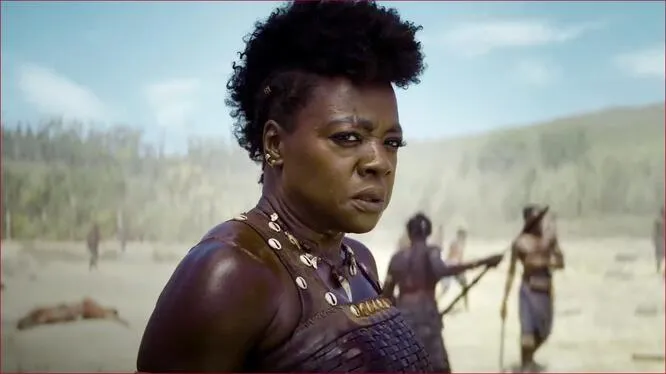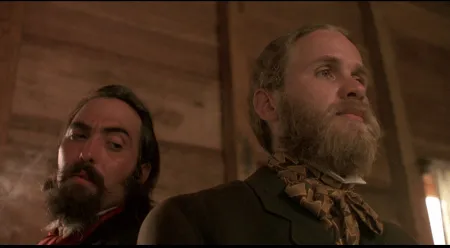Alternate history films are a charming genre that go into the idea of “what ifs” – what would happen if historical events had unfolded differently? These films typically take a pivotal moment in history and reimagines it, allowing us to see how the world would change as a result. From cowboys riding modern machines in the Wild West to a world where Nazi Germany has invaded Britain, these films offer a Look into a world both familiar and yet, utterly different.
One such film is “Walker” (1987), a western set in the Wild West where technology has advanced rapidly, and cowboys coexist with modern machines. Another thought-provoking film is “Never Let Me Go” (2010), which explores a world where medical advancements have led to humans living past the age of 100. These films make us consider the consequences of different events unfolding and how this might shape the world we live in.

A Still From The Woman King (2022). (Via IMDB)
Alternate history films also examine historical events in a different light. For example, “Alternate History: The Confederate States of America” (2004) is a unique mockumentary-style comedy that imagines a world where the Confederacy won the American Civil War. On the other hand, “Once Upon a Time… in Hollywood” (2019) is a comedy-drama that takes place in the 1960s, where the Manson family is thwarted from committing the Tate-LaBianca murders, and Sharon Tate survives.
Anastasia” (1997) is another intriguing film that explores what would happen if the Grand Duchess Anastasia Nikolaevna of Russia had survived the Bolshevik Revolution. French animated film “April and the Extraordinary World” (2015) is a thought-provoking film that explores a world where Napoleon III was killed, leading to a halt in scientific progress and environmental degradation.
Other films, like “The Woman King” (2022), examine historical conflicts, while “Inglourious Basterds” (2009) is perhaps the most famous alternate history film, where a special task force is created to assassinate Adolf Hitler during World War II. These films offer a unique perspective on our world and allow us to consider the what-ifs that shape our history.
























